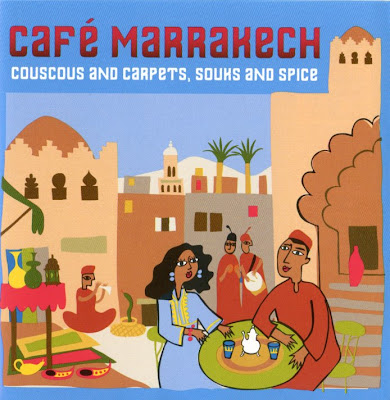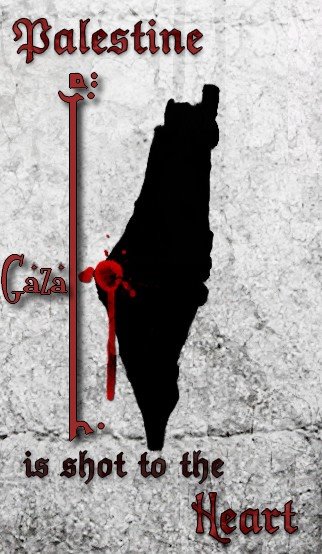 Album
Album : A Night in Marrakech
Artists : Various
Tracks and Artists :
CD11 .Nass El Ghiwane - Mahmouna
2 .Jil Jilala - Assalamo Âlaïkom
3 .El Bahri - Mou T Jara
4 .
Raymonde - Ateouni L'Kass
5 .Najat Aatabou - LM Ouima
6 .Youmni Rabii - Gouli Je T’aime
7 .Chalf Hassan - Aïta Jilaliya (Spiritual Call)
8 .Orchestre Fayçal - Klam El Aar
9 .Altaf Gnawa Group - Baba Mimoun (Father Mimoun)
10 .Groupe Sidi Mimoun – Guafla (Gnawa)
11 .Groupe Ben Souda – Beshmellah bdina (Issawa)
CD21 .Amïra Saqati - Marrakech X-Press
2 .Mara & Jalal - Khalik Hdaya
3 .Gnawa Njoum Experience - Kami Ni Mantara
4 .Momo - Visa
5 .U-Cef - Idman
6 .Cheb i Sabbah – Sadats: Fnaïre Vs Cheb i Sabbah Remix
7 .DJ Click - Malful Reaction
8 .Azzddine with Bill Laswell - Droub Al Lil
9 .Niño Korta - Thé à la Menthe
10 .Cheb i Sabbah feat. B-Net Marrakech – Sadats: Saints of Marrakesh
11 .Dar Beida 04 feat. B-Net Marrakech - Wydadi Ahlam
12 .Abdeljabbar - El Baqara
.
Download Part 1.
Download Part 2.
CD1 .Traditional.
.............................
1. Mahmouna - Nass El Ghiwane : This is an epic gnawa trance builder from one of Morocco's most respected and influential bands. Loosely described as the Rolling Stones of North Africa, Nass El Ghiwane ruled the airwaves throughout the seventies, and continues to enthrall audiences the world over. 2. Assalamo Alaikom - Jil JilalaJil Jilala : Presents a refreshing take on the gnawa sound, albeit with a slightly cleaner persona than their rivals Nass El Ghiwane. Here they sing praise to Allah, with a very strange retro drum machine for company. 3. Mou T Jara - El Bahri : Forty-year old Moroccan singer El Bahri is based near Casablanca, and made his name singing popular Moroccan songs. This is a Moroccan call-and-response classic clocking in under the three minute thirty second mark. 4. Ateouni L'Kass - Raymonde : Born in Casablanca, but now living in Israel, Raymonde made her name in Europe singing at ex-pat private parties and Jewish weddings. This track makes full use of a throbbing darbuka rhythm, at once intense and trancelike. 5. LM Ouima - Najat AatabouAatabou : is one of Morocco's best-known female singers, with a penchant for penning starkly honest lyrics. This track is a typically tortured performance, rinsing every ounce of emotion out of her slight frame. 6. Gouli Je T'Aime - Youmni Rabii : An expert in chanson, chaabi, and rai styles, Youmni Rabii first made his name on the international stage when he joined German global beat pioneers Dissidenten. This is classic Moroccan rai with an infectious chorus. 7. Aita Jilaliya (Spiritual Call) - Chalf Hassan : Originally from Casablanca but now living in London, Chalf Hassan is a master musician / singer steeped in Koranic culture. He's played alongside Hossam Ramzy, Robert Plant and Jimmy Page, but this percussive delight is pure tradition. 8. Klam El Aar - Orchestre Faycal : Exponents of Moroccan chaabi, this epic track features a pulsating darbuka rhythm, sprawling keys, and tight Oud solos. At times it sounds like a barrage of disparate elements, but listen closely and the rhythms start making sense. 9. Baba Mimoun (Father Mimoun) - Altaf Gnawa Group : This is classic gnawa with earthy call-and-response singing. The omnipresent three-stringed guimbri is backed by handclaps and karkabas (metal castanets), providing a heady mixture of spiritual Arabic tradition and West African roots. 10. Guafla - Groupe Sidi Mimoun : Metal cymbals, guimbri, chanting and that omnipresent, insistent, pulsating rhythm … what more could you ask for? Just close your eyes. 11. Beshmella Bdina - Groupe Ben Souda :Taking you back to the campfire tradition of the Moroccan gypsies, this is a percussion heavy masterpiece of male bonding. The large group effect is mesmerizing, giving the feeling of eavesdropping into the past.
CD2 .Traditiona Mix.
...................................
1. Marrakech X-Press – Amira Saqati : Taken from their stunning new album 'Destination Halal' this driving Arabic techno anthem utilizes pulsating darbuka, oud, manipulated Moroccan vocals, and overdriven guitars. 2. Khalik Hdaya – Mara & Jalal : Cheb Mara was born in Mohamedia, a city near to Casablanca, and made his name selling tapes on Moroccan markets. For this project he hooked up with producer Jalal Hamdaoui, and the result is rai with a lolloping reggae beat .3. Kami Ni Mantara – Gnawa Njoum Experience : Ragga, dub, and gnawa don't sound like comfy bedfellows, but this wonderful track shows how effective the mix can be. Gnawa Njoum Experience consists of both French and Moroccan musicians and DJs, who met at hip Paris nightspot Batofar. 4. Visa – Momo : Based in the UK, Momo (Music of Moroccan Origin) wowed festival audiences a few years ago. Recently they've been ominously quiet, but Visa, taken from their debut album, shows what the initial fuss was all about. 5. Idman – U-Cef : Recorded shortly after his groundbreaking debut album, this sees ex-pat Moroccan producer U-Cef's strong hip-hop sensibilities take on the latest Western break beat techniques, and includes some deft Arabic rapping. 6. Sadats: Fnaire Remix – Cheb I Sabbah : This is a radical reconstruction from rising Moroccan hip-hop stars Fnaire. The original (featured later) took its impetus from gnawa trance, whereas this version adds a funky bounce and cool rapping to the mix. 7. Malful Reaction – DJ Click : Part of the Boom Da Clash collective based in Paris, DJ Click is a prolific composer drawing most of his inspiration from Morocco. This track is electro dub with a distinctive North African tint. 8. Droub Al Lil – Azzdine with Bill Laswell : Based on a traditional track straight out of Rabat, the rhythms are heavily muted and given a heavy dub makeover. Lyrically the track is modern Moroccan poetry, speaking about dark, illicit night thoughts. Azzdine Ouhnine is a blind Oud player and composer . 9. Thé á la Menthe – Nino Korta : A track chosen as much for its title as its contemporary Moroccan club sound, Nino Korta adds minimalist traditional samples to a funky electro beat, scratches, and eerie desert laden effects. 10. Sadats (Saints of Marrakech) – Cheb I Sabbah feat. B'Net Marrakech : Taken from the critically acclaimed album 'La Kahena', this was a radical departure for San Franciscan based producer Cheb I Sabbah, marking a return to his North African roots. Celebrated female vocal group B'Net Marrakech, who give the track its earthy, intransigent edge, joins him. 11. Wyadi Ahlam – Dar Beida 04 : When producer Pat Jabbar recorded Dar Beida 4 in Marrakesh, he hadn't realised that celebrated female vocal collective B'Net Marrakech lived just around the corner. Jabbar describes the lyrics to this dub heavy track as "surrealistic, Dadaistic dreams. 12. El Baqara – Abdeljabbar : An exclusive track that really rocks out from the Barraka stable. Baqara means cow, and Jabbar describes the track as being about "the golden cow, the worship of statues, and leaders … images as symbols of higher powers and the need to destroy them."Words: Phil Meadley with the grateful assistance of Pat Jabbar.































































































